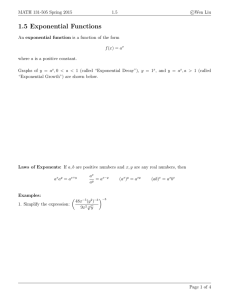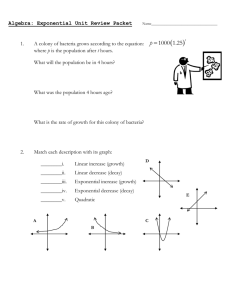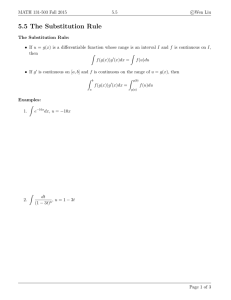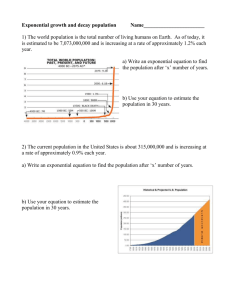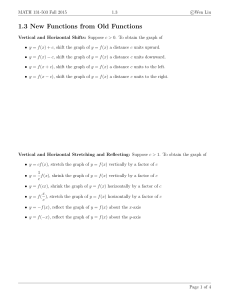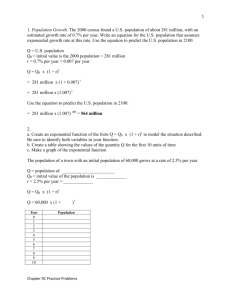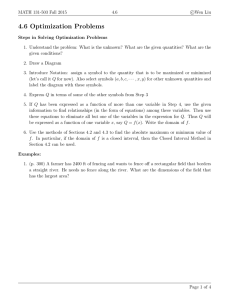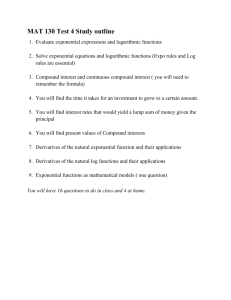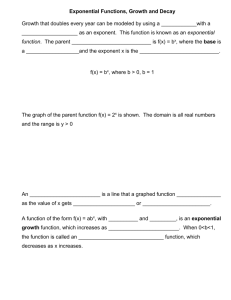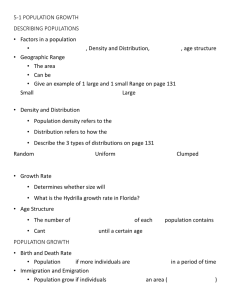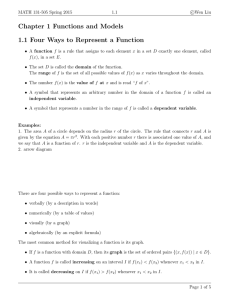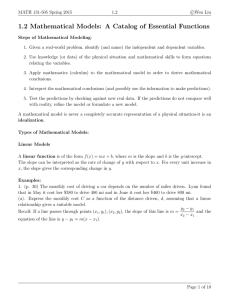Document 10434884
advertisement
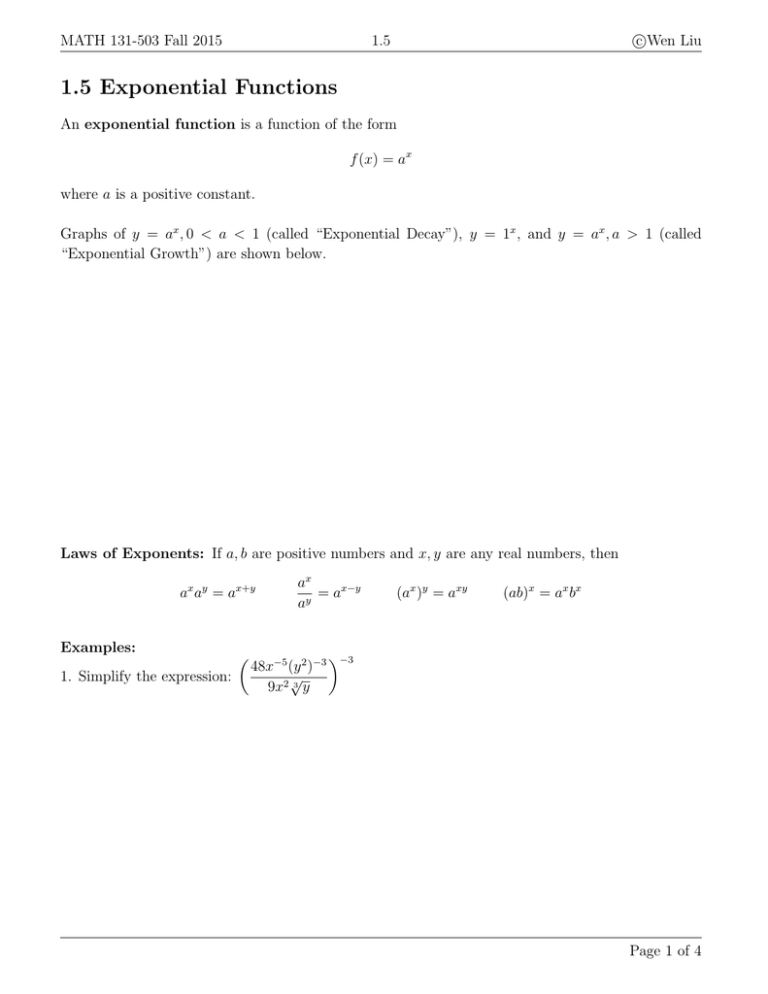
MATH 131-503 Fall 2015 c Wen Liu 1.5 1.5 Exponential Functions An exponential function is a function of the form f (x) = ax where a is a positive constant. Graphs of y = ax , 0 < a < 1 (called “Exponential Decay”), y = 1x , and y = ax , a > 1 (called “Exponential Growth”) are shown below. Laws of Exponents: If a, b are positive numbers and x, y are any real numbers, then ax ay = ax+y ax = ax−y y a (ax )y = axy (ab)x = ax bx Examples: 1. Simplify the expression: 48x−5 (y 2 )−3 √ 9x2 3 y −3 Page 1 of 4 MATH 131-503 Fall 2015 1.5 c Wen Liu 2. (p. 60) A bacterial culture starts with 500 bacteria and doubles in size every half hour. (a) How many bacteria are there after t hours? (b) Graph the population function and estimate the time for the population to reach 100, 000. 3. (p. 56) The half-life of strontium-90, 90 Sr, is 25 years. This means that half of any given quantity of 90 Sr will disintegrate in 25 years. (a) If a sample of 90 Sr has a mass of 24 mg, find an expression for the mass m(t) that remains after t years. (b) Find the mass remaining after 40 years, correct to the nearest milligram. (c) Use a graphing device to graph m(t) and use the graph to estimate the time required for the mass to be reduced to 5mg. Page 2 of 4 MATH 131-503 Fall 2015 c Wen Liu 1.5 Of all possible bases for an exponential function, there is one that is most convenient for the purposes of calculus. We call the function f (x) = ex the natural exponential function. Examples: 4. Starting with the graph of y = ex , write the equation of the graph that results from the following changes: reflecting about the x-axis and then about the y-axis. 5. Match the exponential function with its graph. (a) g(x) = 2x (b) g(x) = 2x + 1 (c) g(x) = 2x−2 (d) g(x) = 2−x Page 3 of 4 MATH 131-503 Fall 2015 1.5 c Wen Liu 6. Immediately following an injection, the concentration of a drug in the bloodstream is 500 milligrams per milliliter. After t hours, the concentration is 85% of the level of the previous hour. Find a model for C(t), the concentration of the drug after t hours. Page 4 of 4
